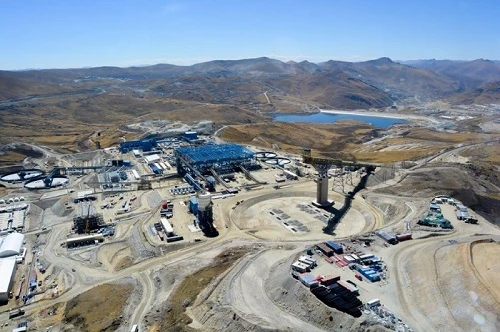As India quietly aims to achieve mineral security amid rising risks over global supply chain network, Prime Minister Narendra Modi’s Australia visit is set to expedite public sector company Khanij Bidesh India Ltd’s (KABIL) investments in Australia. Modi, who met his Australian counterpart Anthony Albanese, said in a tweet that while the two countries have decided to give a further push to the Comprehensive Strategic Partnership, talks revolved around boosting cooperation in sectors such as mining, critical minerals, renewable energy and trade.
Canberra is already looking at rare earth mining and trading with “like minded” countries, in the wake of China’s dominance in this field.
As part of the Australia-India Critical Minerals Investment Partnership agreement, New Delhi and Canberra will further support each other in supplying critical minerals. KABIL, a joint venture between National Aluminium Company (NALCO), Hindustan Copper (HCL) and Mineral Exploration Company (MECL) is also looking at investing in Australia for tapping the country’s rich mineral resources.
Notably, in February, Australia barred Chinese-linked investment fund, Yuxiao Fund, from increasing its stake in Northern Minerals Limited citing security reasons. The investment fund, registered in Singapore, is owned by Chinese national Yuxiao Wu. The investment firm sought approval to increase its stake from 10 per cent to 19.9 per cent.
“There is a special category of assets for any government to protect its national interest,” Northern Minerals Executive Chairperson Nick Curtis told Reuters.
China currently accounts for more than 60 per cent of the rare earth mining in the world.
Australia’s resources minister, Madeleine King earlier said that the concentration of the critical minerals market in China posed a strategic challenge to Canberra, the Guardian reported.
“Working together, like-minded partners can build new, diverse, resilient and sustainable supply chains as part of a global hedge against concentration,” King said at an event.
According to Australia’s foreign trade department, the country has reserves of at least 21 of the 49 critical minerals identified by New Delhi and can play an integral role in strengthening India’s supply chains. Australia has the potential to be one of the top suppliers of cobalt to India. It also has reserves to supply many other critical minerals to India, including antimony, lithium, rare earth elements and tantalum, which will be critical for New Delhi’s mineral security and its stiff target of achieving net-zero carbon emissions by 2070.
Meanwhile, Japan has also increased its investment in the Australian rare earths major Lynas with an aim to secure the supply of these minerals.
Rare earth elements are critical raw materials required for manufacturing smartphones, computer memory, rechargeable batteries, magnets, fluorescent lighting among other things require rare earth components.
Also read: PM Modi invites Australian business leaders to partner India in mining and minerals sector




















